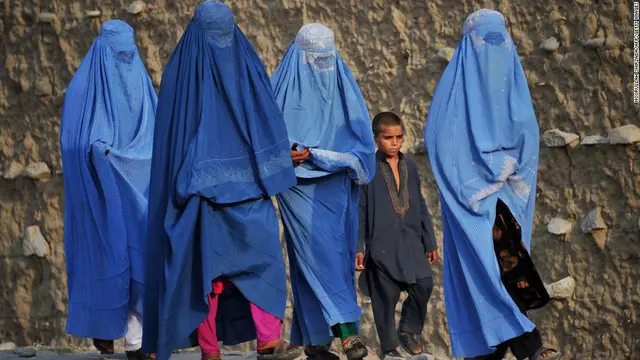"Although women's status has been improved to some extent, there is still a long way ahead to ensure their rights and eliminate violence against women in conservative Afghan society," a women's right activist Mursal, 24, told Xinhua on Tuesday.
Living in the capital city Kabul and fighting for women's rights, Mursal, who like many Afghans goes by one name, said that Afghan women are still facing pervasive violence ranging from physical beatings to murders, even though the country's constitution guarantees women's rights.
"I can say that Afghanistan is hell for women; is the most dangerous country for women to live in as several women have been stoned to death or brutally killed over the past year," the activist lamented in talks with Xinhua.
To prove her claim, the young activist noted that a female Kabul resident, Farkhunda, 28, was brutally killed and her body set on fire by a mob in Kabul city in broad daylight last March, while several more women and girls have been stoned to death or beheaded in areas controlled by Taliban militants.
Although women's status has positively improved in Afghanistan since the dethroning of the Taliban regime in late 2001, Afghan women, mostly in the countryside, are facing variety of problems and violence.
Physical beating by in-laws' families, domestic violence including under-aged marriage and forced marriage of women and girls are common occurrences in the male-dominated and conservative Afghan society, where tribal traditions are deep rooted.
According to the Afghan human rights commission, 5,132 cases of violence against women including murders, honor killings, rapes, and physical and mental violence, have been registered over the past one year.
The statistics, released on the eve of March 8, which is International Women's Day, revealed that cases of violence against women registered in the previous year totaled 4,873, which shows a shocking increase in the past year.
"Women are regarded as second class citizens in Afghanistan," Mursal said, saying, "Women cannot leave their homes alone, or they will face violence, even on the streets."
International Women's Day, in Afghanistan was marked by holding meetings, conferences and seminars in the capital city and in the provinces to highlight women's rights and their role in developing society.
To boost awareness on women's rights and their role in developing the country, the state-owned media including national radio and television aired special programs related to the topic.
"I am committed to ignoring all challenges and security threats to fight for the rights of women and even sacrifice my own life to win the war for my rights and the rights of all women," said Mursal bravely.
Defying the tribal tradition and restrictions imposed by its regime during its six-year reign, Afghan women, presently, are serving as cabinet members, legislators, business people, artists and singers, a progress unthinkable during the Taliban rule.
However, women and girls in the countryside and rural areas are unaware of their rights, and are mostly confined to their houses where they suffer from poverty and have little access to school and clinics.
"Afghan women have seen positive changes in their status over the past 15 years in the post-Taliban Afghanistan. Women in cities can go to school, can work in offices and have their own businesses," another women's rights activist, Hamida Wardak, told Xinhua.
Nevertheless, she said that women in the male-dominated Afghan society are still deprived of their rights, especially in the rural areas.
"In many cases, particularly in rural areas, the tribal traditions and security problems have deprived women and girls from going to school and working out of home," Wardak said regrettably, adding that achieving women's rights would require a sustained fight. Enditem
 简体中文
简体中文

